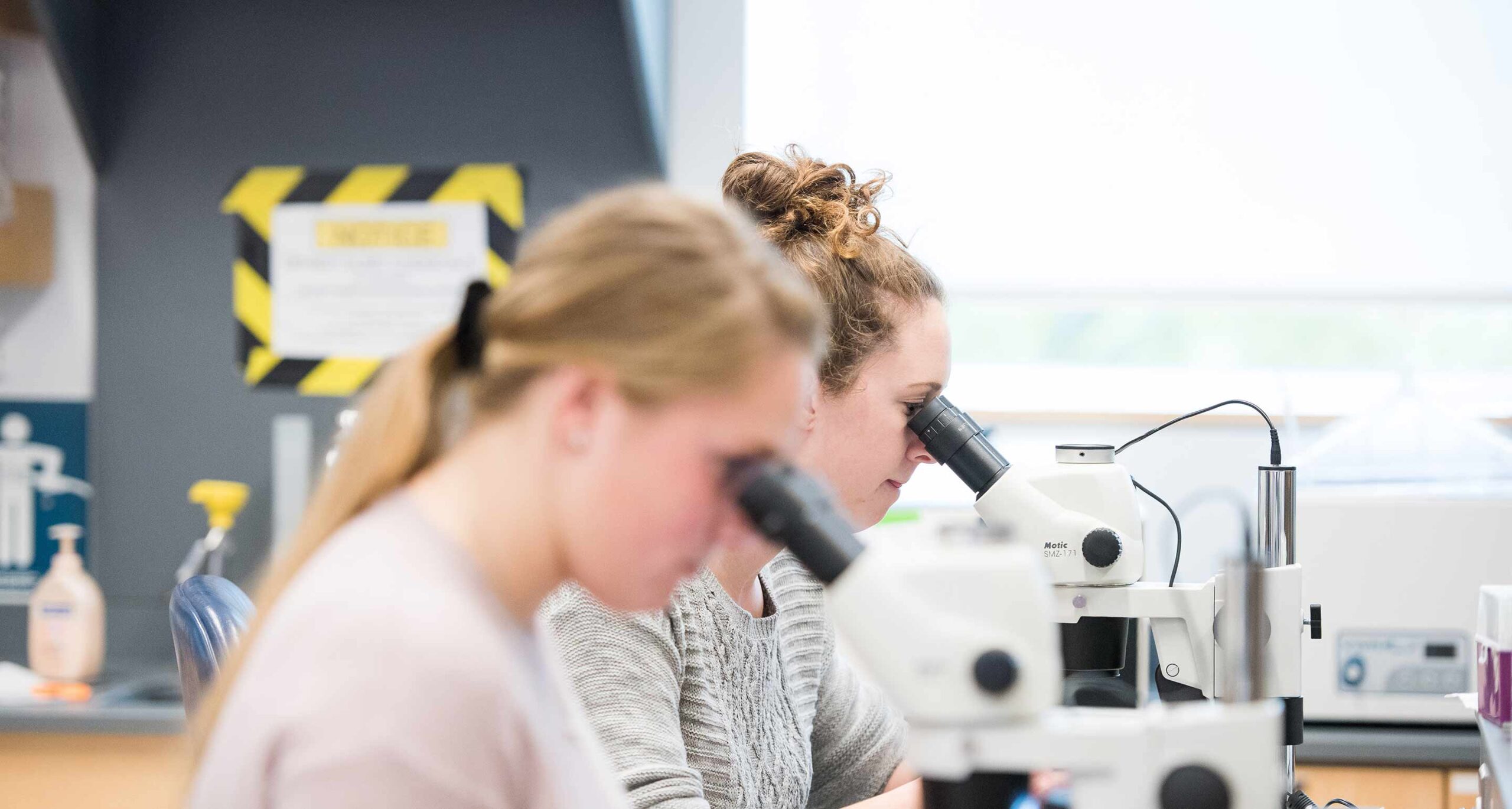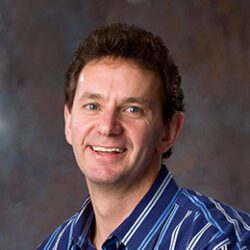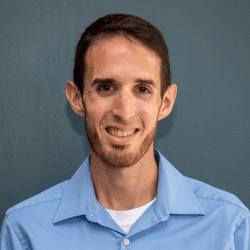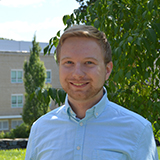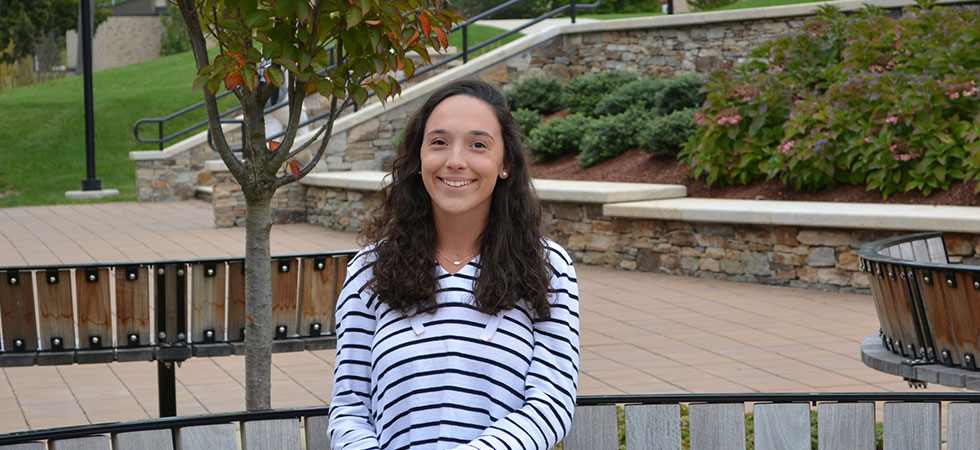What is Neuroscience?
Neuroscience is the study of the development and function of the nervous system, with an emphasis on the brain and spinal cord. This field uses multidisciplinary approaches to study topics ranging from molecular underpinnings of brain function, to treatments for diseases including Parkinson’s and Alzheimer’s Disease, to learning and memory, emotions and more.
Why Study Neuroscience at Assumption?
When you major in neuroscience at Assumption, you have the distinct opportunity to choose between four different majors that focus on different facets of neuroscience.
Two of which are more heavily focus on biological approaches:
- B.S. in Neuroscience with Cellular Path
- for students who wish to develop and refine skills of inquiry with a focus on the brain and mind
- B.S. in Biology with a Concentration in Neuroscience and Behavior
- for students whose interests are drawn towards genetic, molecular and cellular mechanisms of brain development and function as well as neurological disorders/diseases.
Two of which heavily focus on psychological approaches:
- B.A. in Neuroscience with a Psychology Path
- for students who are interested in the neurological mechanisms that underlie human thinking and behavior.
- B.A. in Psychology with a Concentration in Neuroscience of Human Behavior
- for students who want to focus on the psychological aspects of brain function.
Neuroscience students build their knowledge of neuroscience discoveries while also enhancing their skills of investigation. Students learn to pose hypotheses, execute experiments to test those hypotheses, collect and analyze data, and communicate their findings to the community. Our program warmly welcomes students to conduct research with Assumption professors and with other professionals in the industry.
Along with academic opportunities, neuroscience students at Assumption will benefit from our Center for Neuroscience, which offers experiences such as paid summer internships, neuroscience seminar series, community service activities, and more. Assumption also has a chapter of the National Neuroscience Honor Society, Nu Rho Psi, and a student-led neuroscience club.
Neuroscience majors will be prepared to pursue careers in industry, health professions, and graduate studies within the field of neuroscience.
Jessica Lucas Whitt, Ph.D.
Faculty
Experiential Learning
Assumption’s Center for Neuroscience
The Center provides a vibrant, interdisciplinary community of students and faculty with the opportunity to explore current brain-centric research findings in a variety of ways. The Center aims to increase opportunities for student research, enable students to present their research at national conferences, offer neuroscience-focused career-building events on campus, host a neuroscience-centric lecture series featuring nationally recognized neuroscientists, provide opportunities for networking, and engage in community outreach.
Learn moreHands-On Research: Students have the opportunity to work one-on-one with Assumption faculty on research projects. Students can earn academic credit for research completed during the academic year and may apply for paid summer research fellowships. Assumption also enjoys an internship pipeline with the University of Massachusetts Medical School (UMMS), just minutes from campus.
Examples of recent student/faculty presentations and publications:
- McKillop,H., Genao, N., Francis, M.M., Lemons, M.L. (2023) Investigating roles for extracellular matrix in neuronal synapse formation. Society for Neuroscience Meeting, Faculty for Undergraduate Research symposium.
- McKillop, H., O’Keefe, S., MacQuarrie, L., Francis, M.M., Lemons, M.L. (2022). Investigating Roles of the Extracellular Matrix in Synapse Formation. Society for Neuroscience Meeting, Abstract Control # 10425.
- Lemons, M.L. (2021) Promoting Enduring Learning by Connecting Course Content to Community Service. Society for Neuroscience Meeting. Virtual poster presentation.
- O’Keefe, S., McKillop, H., MacQuarrie, L.M., Francis, M.M., Lemons, M.L. (2021) Investigating the roles of the extracellular matrix in synapse development. Assumption University Summer Research Symposium.
- Armstrong, W., Bates, H., Norman,E., Oliver, D., Alexander,K. Francis, M.M., Lemons, M.L. (2019) Molecular mechanisms of neural circuit development. Society for Neuroscience Meeting, Faculty for Undergraduate Research symposium.
- Gordon, L. T., & Price, L. (2023). State mindfulness and misinformation susceptibility. Psychological Reports. Advance online publication. https://doi.org/10.1177/00332941231164073
- M.L. Lemons, M.L. Abanto, N. Dambrouskas, C.C. Clements, Z. DeLoughery, J. Garozzo, M.L. Condic. (2013) Integrins and cAMP mediate netrin-induced growth cone collapse. Brain Research, (1537) 46-58.
- D. Oliver, E. Norman, H. Bates, R. Avard, M. Rettler, C.B. Benard, M.M. Francis, M.L. Lemons.(2019) Integrins Have Cell-Type-Specific Roles in Development of Motor Neuron Connectivity. Journal of Developmental Biology. 7(3), 17; https://doi.org/10.3390/jdb7030017.
Career Paths
Assumption University
Bay Path University
Boston Scientific
Boston University
Casa de Esperanza
Case Western Reserve University
Eurofins
Knox County Schools
Massachusetts General Hospital
MCPHS University
Moderna
The University of Utah
Tufts University
University of Connecticut
University of Massachusetts Chan Medical School
University of Nebraska Medical Center
First-rate Academics in a Catholic University Setting
Assumption University awakens in students a sense of wonder, discovery, and purpose, forming graduates known for their intellectual seriousness, thoughtful citizenship, and devotion to the common good. Students are provided an education that shapes their souls, forms them intellectually, and prepares them for meaningful careers. Enlivened by the harmony of faith and reason, here, students’ minds and hearts are transformed.

